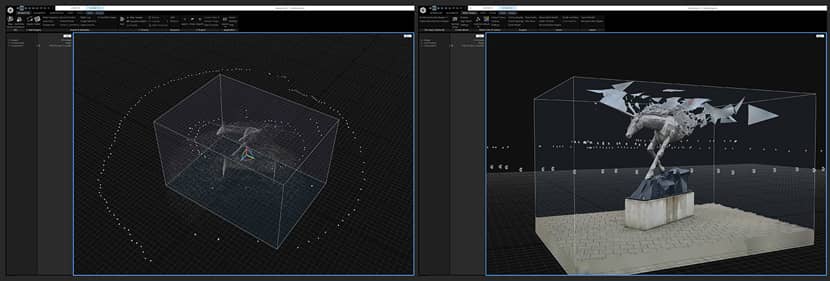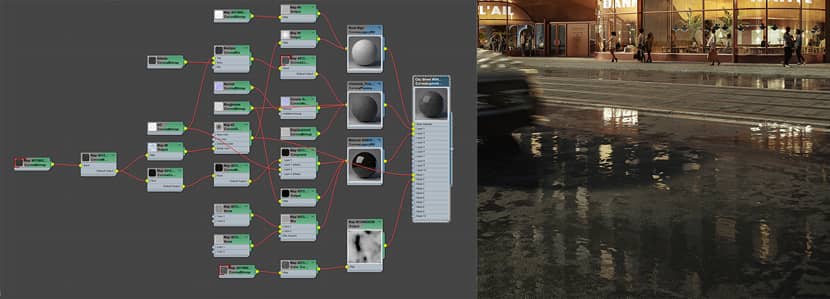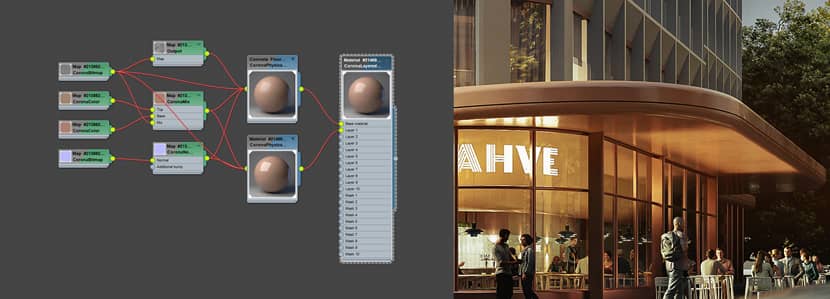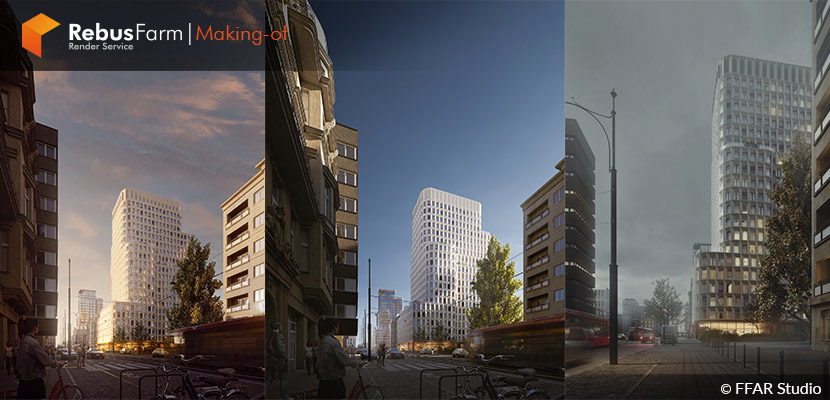
Immerse yourself in the world of FLO34, a stunning architectural visualization project brought to life by the talented team at FFAR studio. In a captivating making-of article, they've generously shared a behind-the-scenes look at their creative process. Get ready to be enthralled by FFAR's journey, from the initial concept to the final awe-inspiring image. Enjoy!
About Us.
Hello 3D Artists,
We’re FFAR, a small CGI studio based in Lodz, Poland. We are architects by education, but CGI has always been our passion, and we have been successfully pursuing this path for some time now. We specialize in architectural visualizations—stills, VR tours, and animations—but recently, we’ve been leaning more toward product renderings.
We're thrilled to share our behind-the-scenes in this Making-Of article, and thank VWArtclub and RebusFarm for this great opportunity!
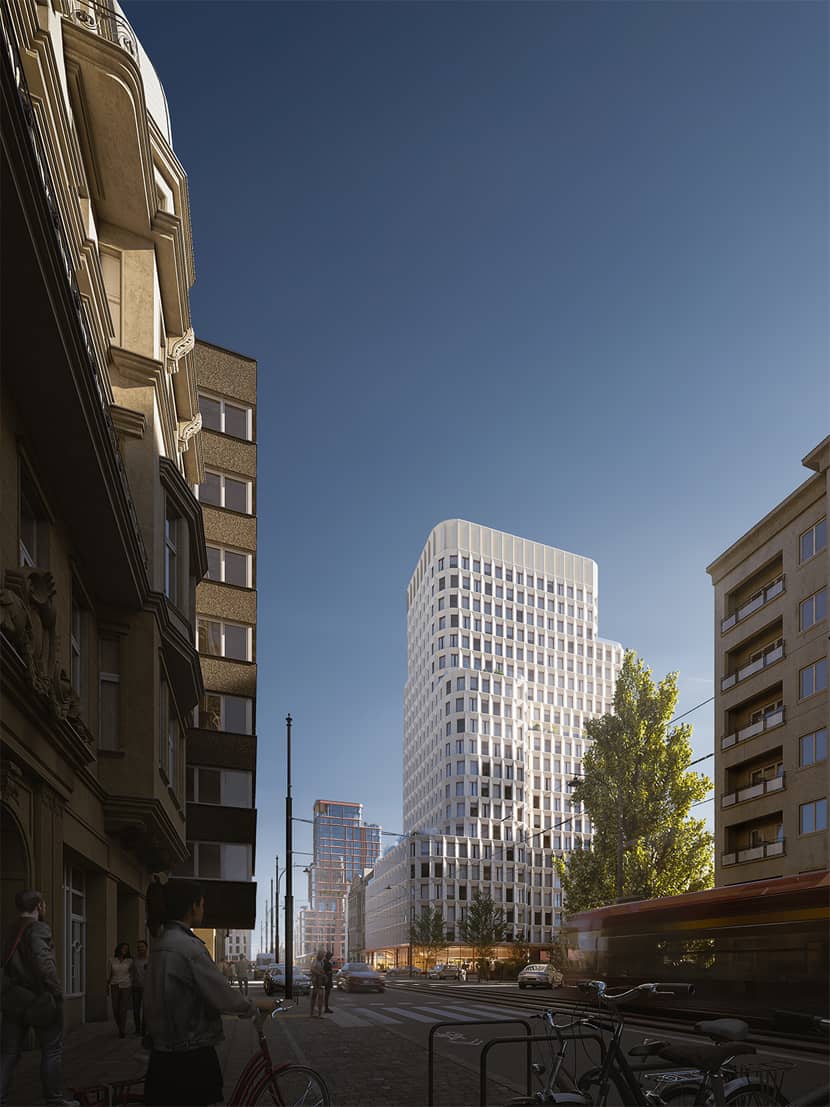
Software Used.
For the sake of creating this project, we used the following software and plugins:
3ds Max, Corona Render 9, ItooSoftware RailClone / ForestPack, RealityCapture, Adobe Photoshop.
About The Project.
CORNER POINTS was a commissioned archviz project we did for our client, the architecture firm Design Lab Group, in 2022. The aim was to create marketing images that would, first and foremost, gain the approval of the City Council, grant the green light for further design works, and eventually communicate the design and "refurbishment" of a well-known zone in the city to the broader public.
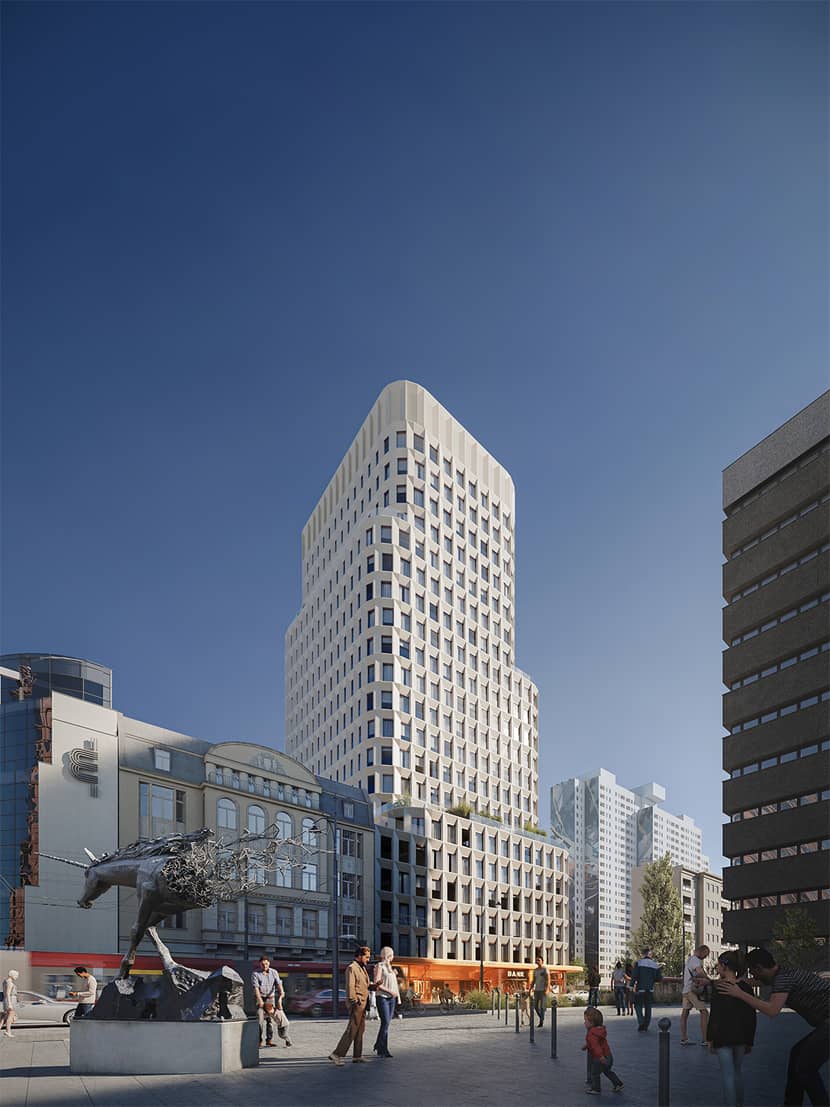
We rendered everything locally on one machine. Despite the scenes being rather complex, rendering in 4K was completed relatively quickly. We usually work with Xrefs in our scenes to achieve consistency through all the shots, as we save all the cameras as separate files.
Modeling.
Modeling was a fun part! We like to keep our scenes in full CGI, allowing us to be limitless in searching for camera angles, composition, and lighting possibilities. In this project, we had to model one of the most prominent crossroads in Lodz, where modern architecture coexists with classical architecture from the 19th century. We were also asked to include a particular monument located there. For this reason, we decided to try out Reality Capture and scan the sculpture using advanced tech—our smartphone cameras. You can see the results below:
Obviously, we had to do some cleaning, fixing, and even some additional modeling, but the effect seems satisfying.
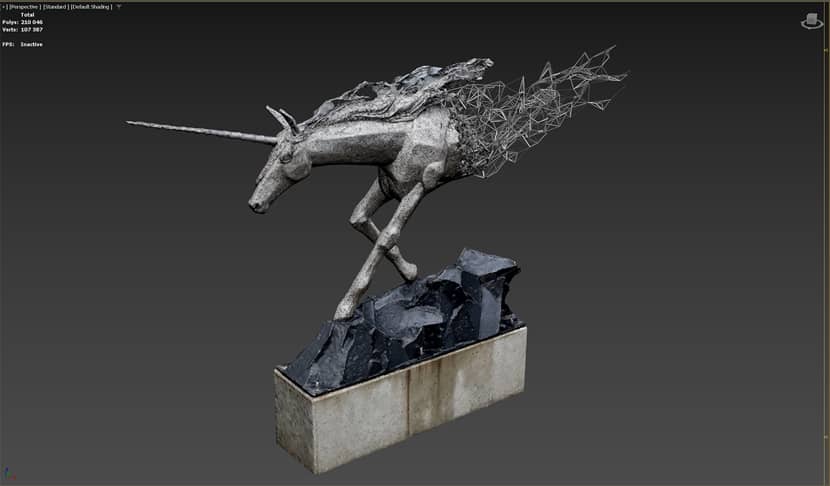
While we had to model a pretty large urban area, we rushed to the site to get photo documentation of the buildings, streets, and all the urban details. It was crucial for further modeling work. We used various methods to create the environment: from simple PolyModelling to the RailClone parametric models, used Forest Pack to populate streets with traffic and pedestrian flow, as well as to distribute vegetation. It always depends on what we have to build and which method would be more efficient. Due to its modular nature, the main structure was constructed with RailClone. It was a great solution, considering architects changed the general geometry of the building twice during the process.
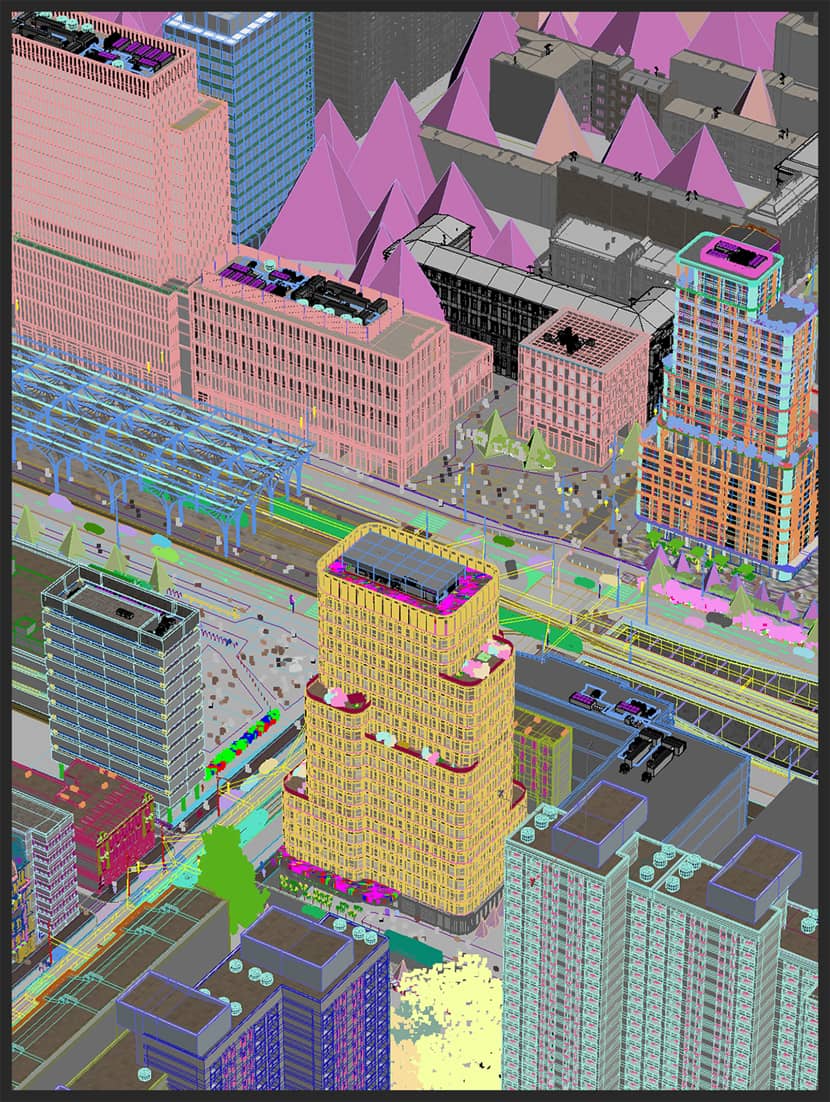
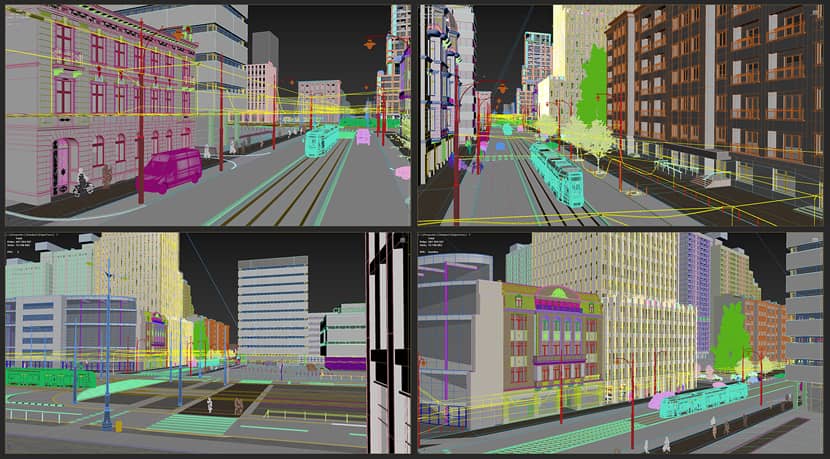
Lighting, Shaders and Rendering.
Before we jump into shading, we continually test various light scenarios on a base grey model using prepared camera angles. We used HDRi maps as well as Corona Sun + Sky, and in some scenes, we even mixed those two. Below, you can see some of the trials.
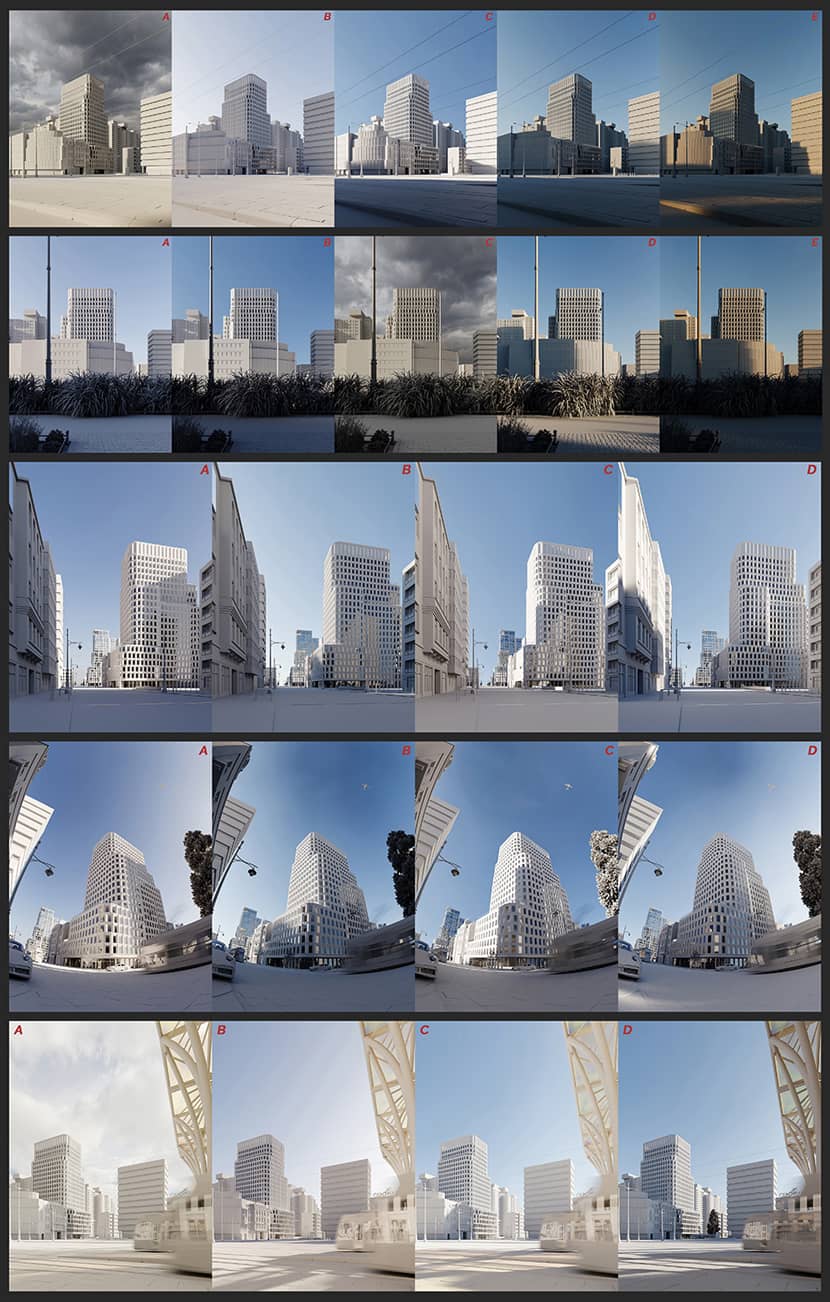
Regarding texturing, we're using different sources and approaches, from tweaking Corona Built-In Materials through Poliigon and Megascans assets to building our own custom materials and generic shaders. Below, you can see an example of some of them:
Post-Production.
As a rule, we try to achieve most of the final characteristics of our images directly in the frame buffer, but sometimes, more advanced post-production is necessary. We use Photoshop for that purpose. We always render additional Render Elements, such as Reflection, Refraction, Volumetrics, and Masking ID, that help us in the process. Below, you can find comparisons between raw renders and post-processed.
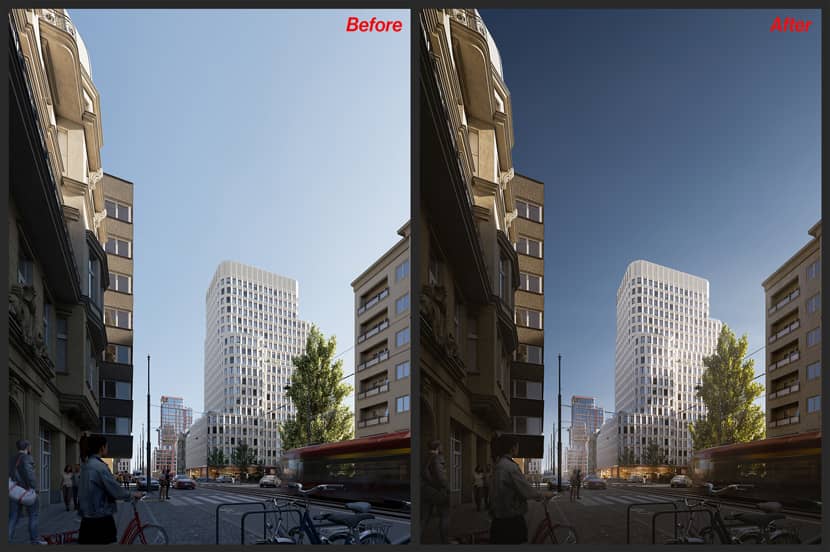
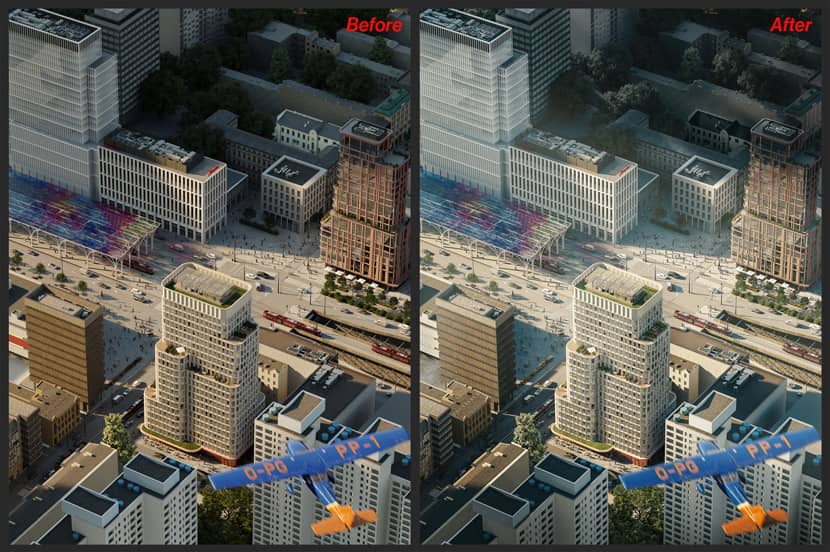
Final Images.


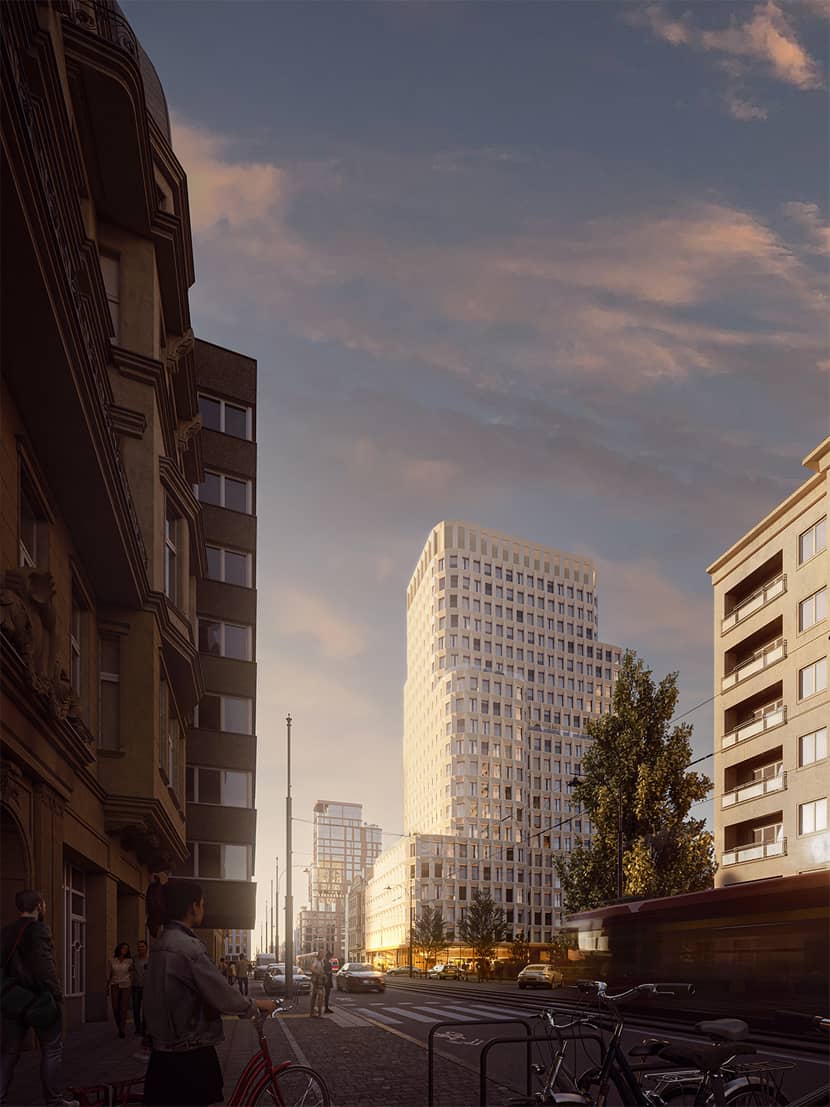
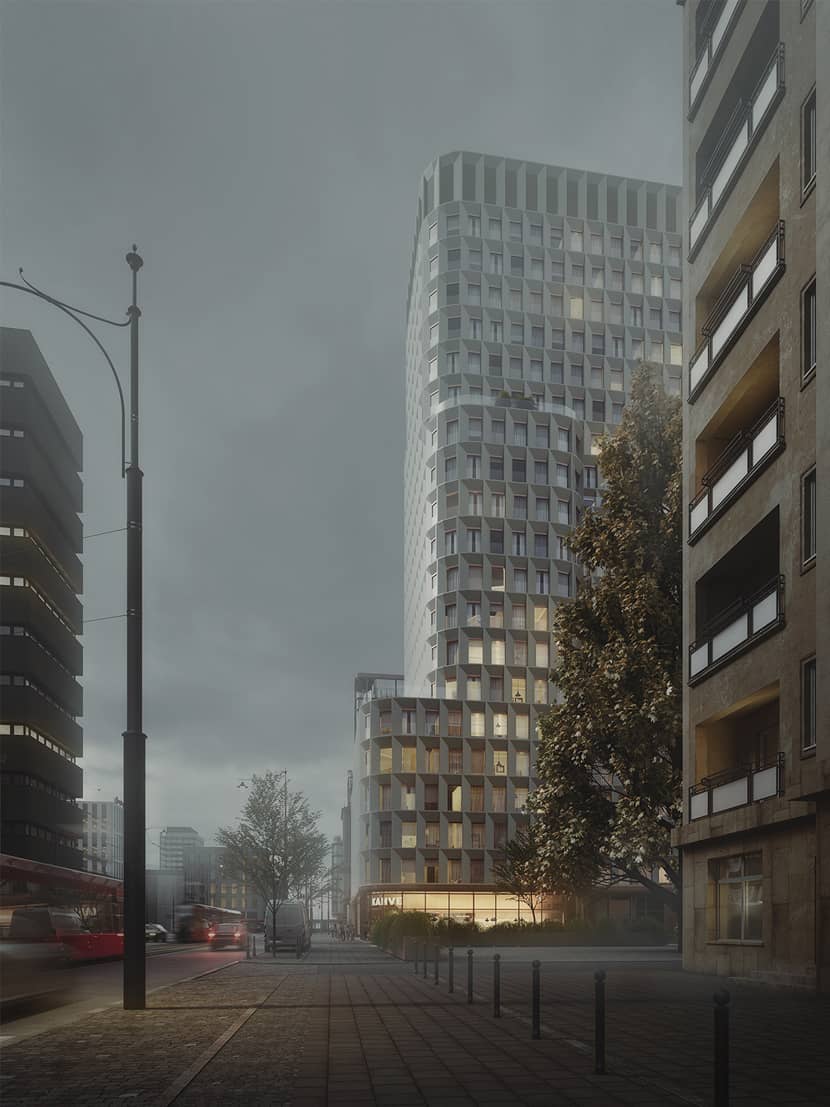
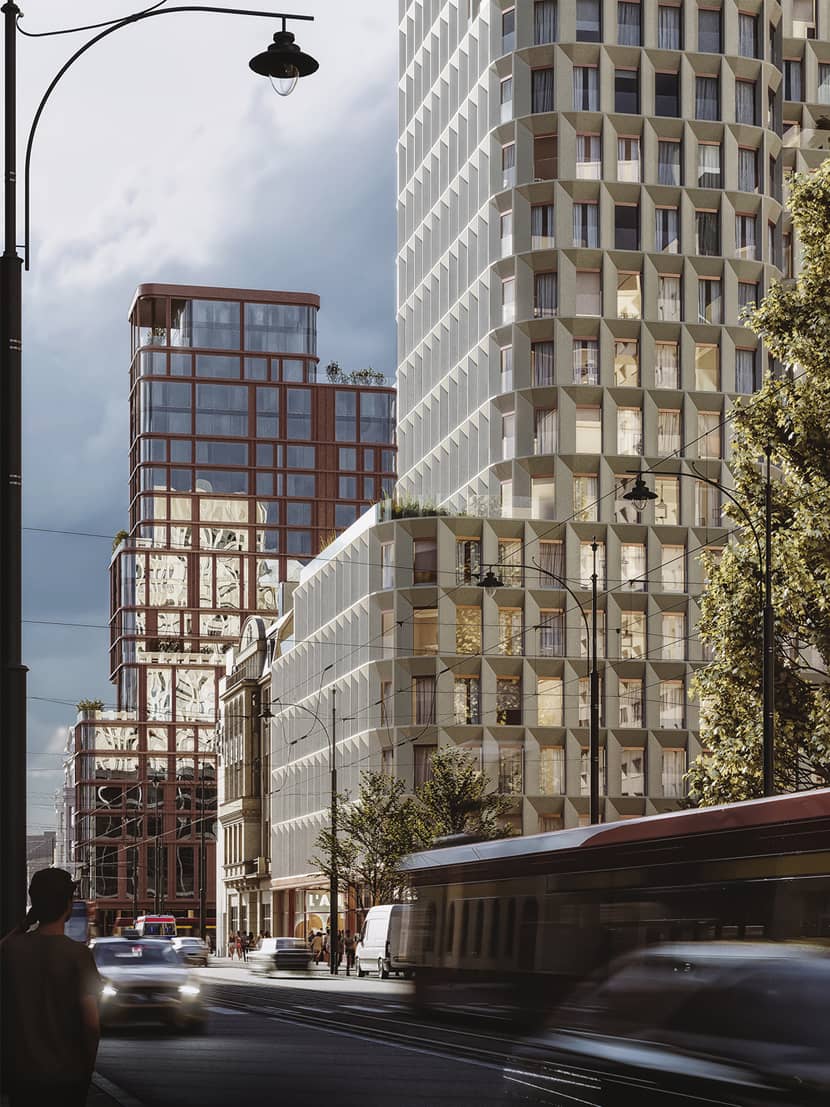
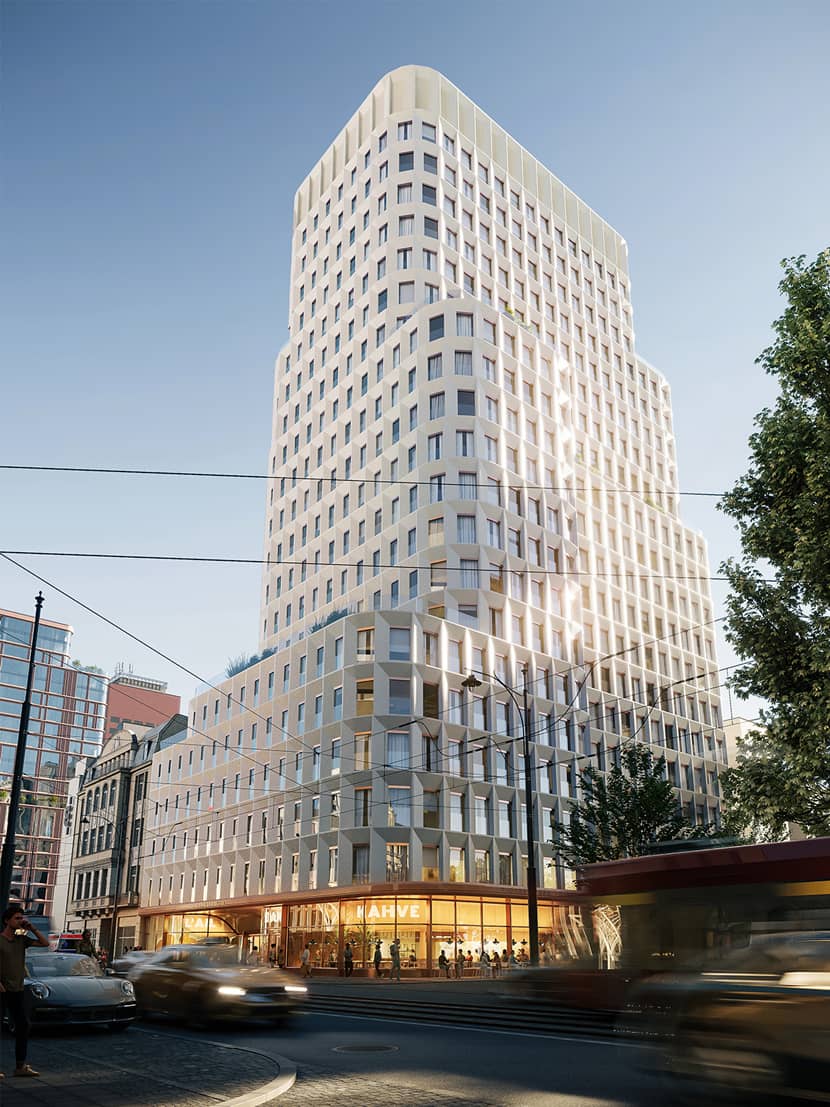
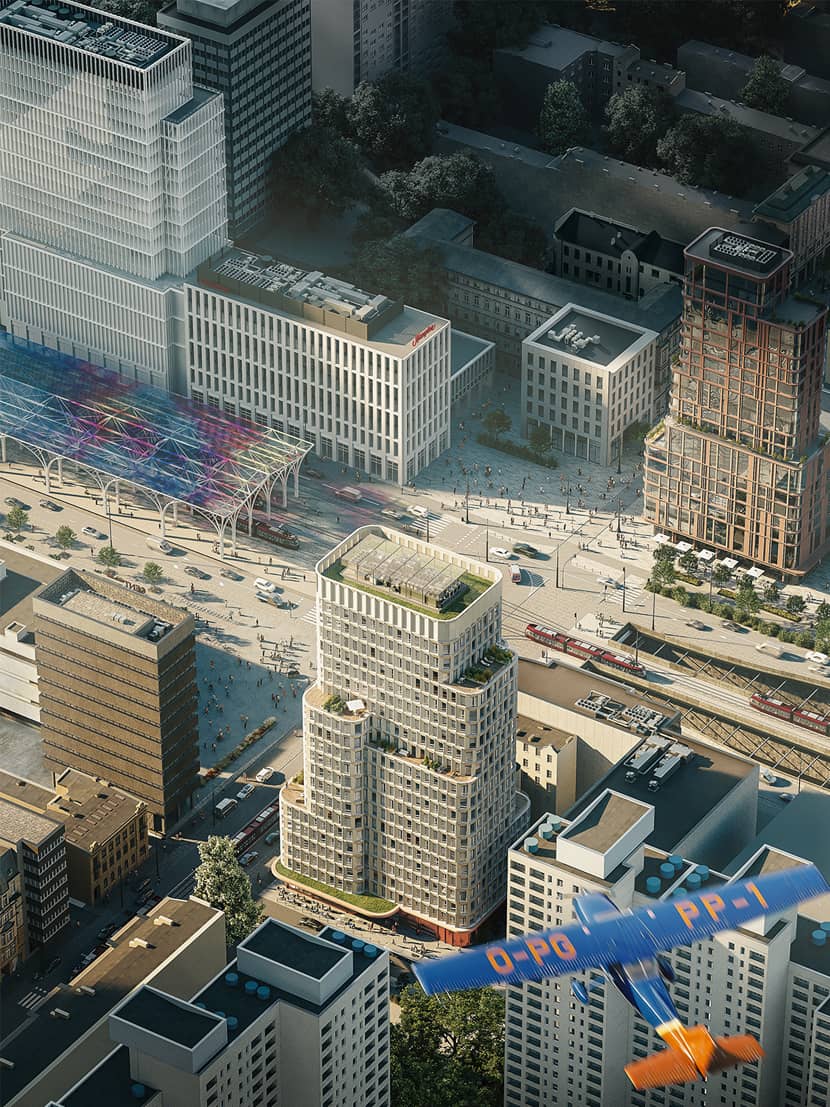
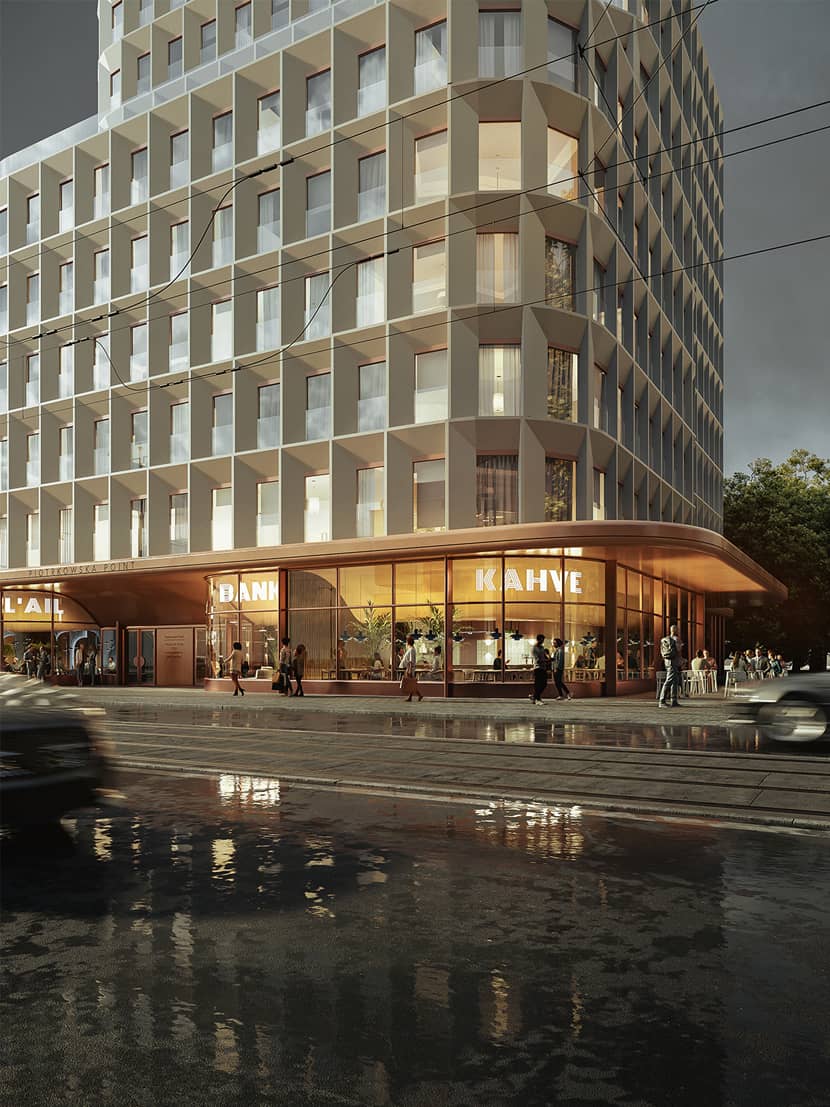
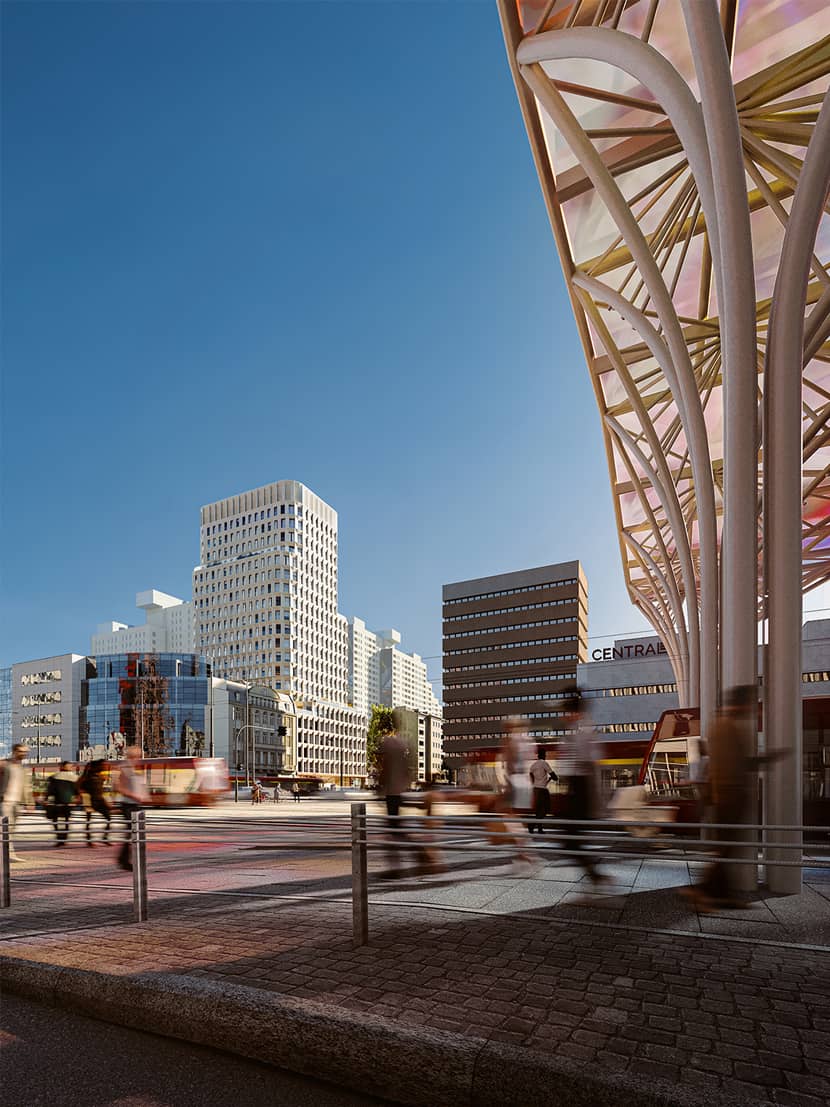
Summary.
We hope you have enjoyed this article. You can follow us through the links below!
Kind regards,
FFAR Studio.
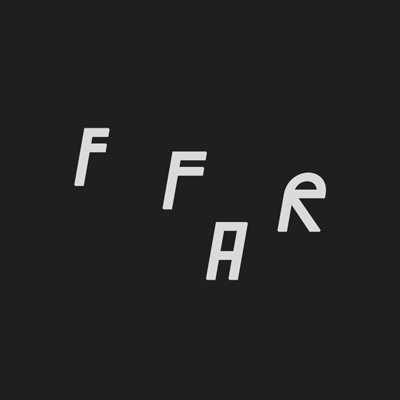
About the artist
FFAR is a small CGI studio based in Lodz, Poland. We are architects by education, but CGI has always been our passion, and we have been successfully pursuing this path for some time now. We specialize in architectural visualizations—stills, VR tours, and animations—but recently, we’ve been leaning more toward product renderings.

